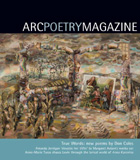George Elliott Clarke with Amatoritsero Ede
Amatoritsero Ede, ex Nigeria, has been a Hindu monk, a book editor, and the 2005-2006 PEN Canada Writer-in-Residence at Carleton University, where he is a doctoral candidate in English. His poetry has been anthologized—and lauded with prizes—internationally. Globetrotter & Hitler’s Children (New York: Akashic, 2009) is his latest collection. He is the founder and editor of the Maple Tree Literary Supplement, at www.mtls.ca. I interviewed him in early September, 2009, via “courrier électronique,” dispatched from Grottammare, Italy. Two poems by Ede follow this interview.
George Elliott Clarke: You are Nigerian by birth, but have lived in Germany, practiced the Hindu faith, and now reside in Canada, where you are a doctoral candidate in English and an editor. How has your birth culture, then the literal passages you have made among other cultures, shaped your poetics?
Amatoritsero Ede: I was also a Muslim as a child, and was a born-again Christian—the type that speaks in tongues—in my teens. This has to do with the cosmopolitanism of the Yoruba culture in which I was raised. The Yoruba always accommodates; in that regard it is rather “Canadian” to the extent that Canadian society is inclusive. My only observation of Canada that I am mystified about is the political correctness, which makes people use words to hide their thoughts instead of to express them. I am still struggling to learn how to be politically correct! In the Yoruba world, there is a proverb which says that the “word”—as a unit of discourse cannot be so weighty that you have to dissect it with a knife. The moral is that no idea can be so sensitive that we must dissimulate about it and refuse to address it. The refusal to let things get bottled up is what informs my critical poetics. In terms of style, the oral, the modern, and the cosmopolitan have influenced my stylistics. I am still “reading” Canadian society, just as I am reading Canadian literature. The European part of my travels certainly exposed me to the-good-the-bad-and-the-ugly in European culture. German is the language of philosophy, if you think of their great poets—Goethe, Holderling, Stefan Georg, Maria Rilke—and their philosophers. My cosmopolitan experience gives me a bird’s eye view when I sit down to write. Chinua Achebe deploys the Igbo proverb in his novel, Arrow of God: “The world is like a masquerade dancing; if you want to see it all, you do not stand on one spot.” I am constantly moving.
GEC: Hitler’s Children is a title that you explain in your introduction, but I’ll ask you to explain it again. Clearly, you feel that contemporary racism in Germany is a “survival” of the Nazi past. But what about Tojo’s children, Mussolini’s children, Franco’s children, or, for that matter, the children of the Old U.S. South?
AE: The motivation for titling that section of Globetrotter & Hitler’s Children came naturally since, if and when the right wing in Germany pay obeisance to Hitler’s wicked memory, they seem to be relating to him as do children to a father. Germany is a Christian country, and we know the whole symbolism of the “father” in Judeo-Christian lore. Hitler is the “Lord,” or father, to the neo-Nazi. It is why I write as intro to Hitler’s Children the poem, “The Skin-Head’s Lord’s Prayer.” I must say that there is a historical eugenicist experiment which the Nazis performed, mating SS Officers with certain chosen German women to produce children who were supposed to be pure Aryan. These people were referred to as “Hitler’s children” in the literal sense. After the war, they suffered a lot of tribulations. But this historical point was far from my mind when I titled that section of my manuscript. As for Tojo’s children, Mussolini’s children, and so on, history is replete with evil machinations. Anywhere we see such, as writers, we have to witness and point it out. And I have decided to begin with Germany.
GEC: Your parody of The Lord’s Prayer, “The Skinhead’s Lord’s Prayer,” is excellent and wicked. Is all post-colonial literature an act of piracy-slash-parody of supposedly “master” texts or canonical authors?
AE: I was simply amused at the irony and contradiction of sections of a Christian country going against the grain of the Lord’s prayer and murdering foreigners in Germany due to the way they look—black, brown, Jewish or Asian. The irony is complicated by the Biblical injunction—one of the Ten Commandments—“Thou shall not kill.” You can see why, in counterpoint to the “Hitler’s Children” part of my collection, I celebrate Torontonian diversity, which right-wing Germany hates. Variety can only enrich us, and as such, celebrate the wonder and ingenuity of humanity, which Gerald Manley Hopkins lauds in most of his poetry, finding beauty and the wonder of creation—even in a blade of grass. We are part of the ecosystem and not above it. The alterity that kills and maims due to race disturbs the ecosystem—to look at it from a purely pragmatic and rather than a moralising point. What makes humanity so interesting is precisely its diversity.
…
read the full interview in the issue
 |
This post is an Arc Interview [read more interviews]Published in Arc 64: Summer 2010 |

